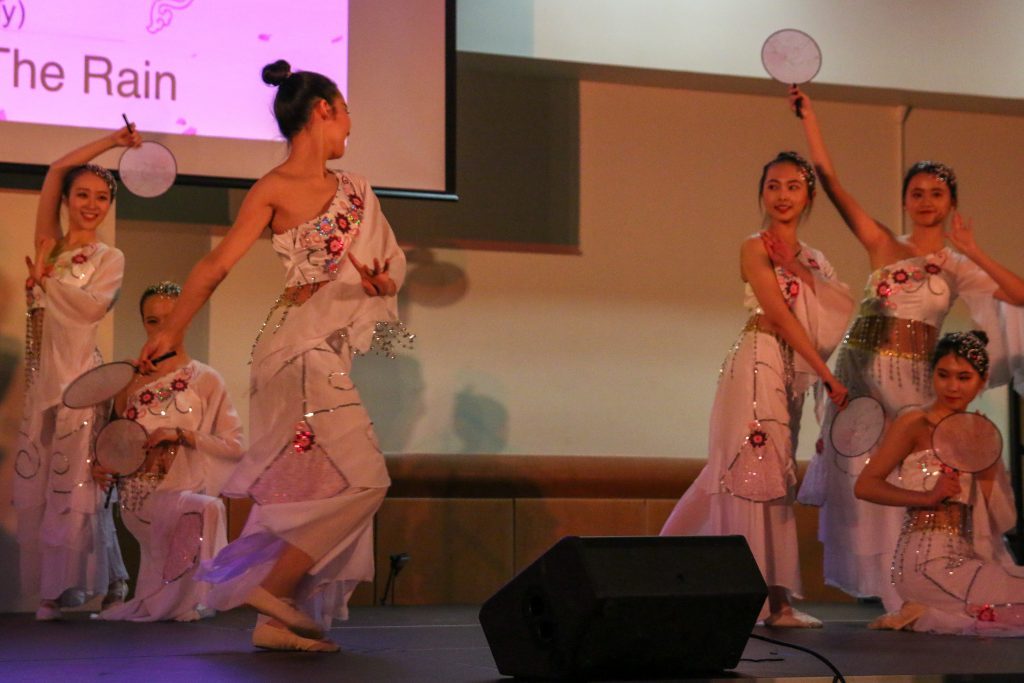The Student Association (SA) is calling on Binghamton University’s administration to designate Lunar New Year as a day off for students.
On Feb. 7, 2022, SA Representative Rita Zheng, a sophomore majoring in philosophy, politics and law, introduced a bill highlighting the cultural significance of the Lunar New Year to many Asian Americans. The bill, which was backed by a diverse selection of student-run groups, including the Asian Student Union, called on BU to designate the first day of the Lunar New Year as a day off for students to observe. The SA Congress unanimously passed the bill two months later.
Lunar New Year originated in China more than 3,000 years ago to celebrate the beginning of a new year on the ancient Chinese Calendar, according to the National Geographic Society. The holiday is traditionally a 15-day-long festival where families and friends join together to celebrate by sharing meals, attending parades and a variety of other important rituals. Today, Lunar New Year is celebrated by many Eastern and Southeastern Asian cultures.
Zheng said she was motivated to write the legislation after a friend had approached her about the issue toward the end of the fall semester.
“At that point, I didn’t even realize that we weren’t getting a day off for Lunar New Year, because growing up in the City, Lunar New Year has been recognized as a holiday in public schools for a while now,” Zheng wrote in an email. “It only felt natural for me to start working on the legislation from then on. Since I knew I wouldn’t be able to pass the legislation before Lunar New Year this year, I took it as an opportunity to gather support from student organizations.”
On March 17, 2023, Avery Benzaken, the BU council representative and a second-year graduate student pursuing a masters in business administration, presented the bill at a meeting of BU Council members, in an effort to make the board aware of the SA’s wish to designate Lunar New Year as a day off for students.
Benzaken explained the importance of excusing students from class on culturally significant holidays.
“The students that came to SA Congress with the bill have expressed the cultural significance of Lunar New Year to them, especially that it is a holiday that is celebrated by being with your family,” Benzaken wrote in an email. “That is the main reason why it is so important that students be given the day off, the importance of family in the celebration. As a Jewish student, I can relate from the High Holidays — Rosh Hashanah and Yom Kippur — which are also celebrated by being with your family, eating holiday meals together and attending services at home, so I understand why it is so important to the students that celebrate Lunar Year.”
Zheng explained why she believes it is important for BU’s president and provost to move forward with the designation of the first day of Lunar New Year as a day off for students.
“This would be a big step for the University in recognizing the presence of its Asian and Asian American students and their concerns in a predominantly white institution,” Zheng wrote. “I’m surprised [BU] hasn’t granted Lunar New Year off already, since Asian students make up about 16 percent of the student population at Binghamton, which is more than 2,000 students. The student population of Asians is also the second largest racial or ethnic group.”
Those who support the recognition of Lunar New Year on campus believe that it would answer the needs of a diverse body of students. The bill’s text specifically highlights the role that the SA’s diversity, equity and inclusion committee plays in this process. The committee is tasked with the development and promotion of initiatives that would further campus-wide cultural inclusivity.
In addition to what the designation of Lunar New Year would mean for the student body at large, Benzaken also highlighted what the implementation of this bill means to him as a BU student.
“Most importantly, it means that our administration has an open mind and open heart to the things that are important to students, and that change does not come from the top-down, but rather from the students themselves,” Benzaken wrote. “All of our students have a right to feel included and valued.”



